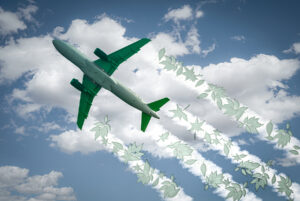Honeywell hydrocracking technology produces SAF from biomass

The new technology produces 3-5% more SAF, enables a cost reduction of up to 20% and reduces by-product waste streams as compared to other commonly used hydroprocessing technologies, according to Honeywell.
Its latest technology innovation, Honeywell FT Unicracking, can process waste biomass into more sustainable aviation fuel at a lower cost, added the organisation.
The Honeywell Fischer-Tropsch (FT) Unicracking™ technology takes liquids and waxes from processed biomass – including leftovers from crops, wood waste or food scraps – and can be used to produce SAF that complies with the standards of the aviation industry and with a lower environmental impact.
"As demand for SAF continues to grow, the aviation industry is challenged by limited supplies of traditional SAF feedstocks such as vegetable oils, animal fats and waste oils," said Ken West, president and CEO of Honeywell Energy and Sustainability Solutions.
"When combined with the existing Fischer-Tropsch process, our new technology will expand the feedstock options available in the industry to sources that are more plentiful, ultimately helping improve our customers' ability to produce SAF."
Recently, DG Fuels selected Honeywell's FT Unicracking technology for its biofuels manufacturing facility in Louisiana – the largest in the world for making SAF from the FT process – that will produce 13,000 barrels of SAF each day when it begins operations in 2028.
"Using Honeywell's advanced technology, DG Fuels will supply enough fuel for more than 30,000 transatlantic flights every year, contributing significantly to reducing the carbon emissions of global air travel," said Michael Darcy, CEO of DG Fuels.
"This is a big leap forward in supporting the airline industry's goal of reaching net zero carbon emissions from international aviation by 2050."


























